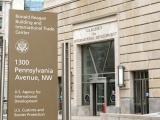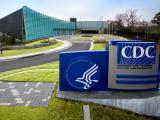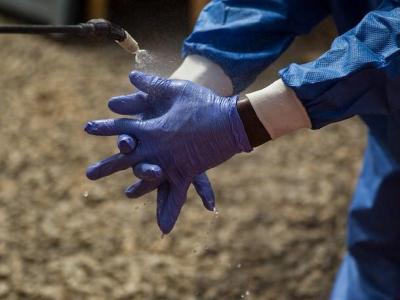Jan 30, 2002 (CIDRAP News) – In view of the specter of bioterrorism, it's time to overhaul the hodgepodge of outdated, little-known, inconsistent state laws dealing with public health emergencies in the United States, an expert on the subject told a conference audience in Minneapolis yesterday.
"Unless we make our laws more consistent and more rational, we are going to exacerbate any kind of public health emergency," Lawrence O. Gostin, JD, LLD, said at a conference on "The Law and Ethics of Public Health Responses to Bioterrorism," held at the University of Minnesota.
Gostin, director of the Center for Law and the Public's Health at Johns Hopkins and Georgetown Universities in Baltimore and Washington, DC, described the model law he has written to assist states in efforts to update their public health laws. The model law would give states broad powers to cope with major health threats, such as the ability to seize supplies of vaccines and drugs, take over hospitals, and require people to be vaccinated, treated, isolated, or quarantined.
The stage for Gostin's lecture was set by a confident prediction from bioterrorism expert Michael T. Osterholm, PhD, that more biological attacks are coming. He called last fall's anthrax attacks "a very tragic dry run" in which bioterrorists used "an incredibly effective bullet"—finely milled, highly potent anthrax powder, but "a very ineffective gun"—envelopes sent through the mail. "Make no mistake about it, it will happen again," said Osterholm, who is director of the University of Minnesota's Center for Infectious Disease Research and Policy.
Gostin said the US public health system has suffered at the expense of a focus on high-tech healthcare. About 90% of public healthcare spending goes into entitlement programs like Medicare and Medicaid, with only about 1% going into public health, he said, adding, "We've really lost sight of the kind of public health infrastructure we need."
Similarly, public health laws have long been neglected, Gostin said. "Most public health laws are very, very old," having been built up layer on layer as epidemics and other dangers came along. Inconsistency is a big problem: Within states, laws aimed at different diseases are inconsistent, and laws also differ from state to state. "In some cases the power is too draconian, in other cases the power doesn't exist," he said.
Gostin said the need for a model law has been clear for a long time, and he had been working with the Robert Wood Johnson Foundation on the issue for years. After the attacks of Sep 11, he was urged to produce a draft in 2 weeks. He prepared the "Model State Emergency Health Powers Act" in collaboration with the national associations of state governors, state legislatures, and state, city, and county health offiicials. A copy of the model law is available online at the Web site of the Center for Law and the Public's Health: www.publichealthlaw.net.
The model law has four sections, two of them dealing with general planning and two with actions during an emergency, the speaker said. The law requires that the state engage in a "systematic, thoughtful" planning process to address such issues as who will be in charge in a crisis and whether needed facilties will be available. "Most states have not gone through such a planning process," Gostin said.
The law also addresses monitoring and surveillance of diseases, which are essential for early warnings of outbreaks, he said. "Do public health officials have authority to gain data where they need them? There are many reasons to believe they do not," he said. Because of privacy concerns, existing laws not only do not facilitate information-sharing among health agencies, but in many cases they prohibit it, he explained.
The model act gives the governor the authority to declare a public health emergency. But because that's an extreme step, the law also provides for checks and balances through the other branches of government, Gostin said. The legislature could overturn an emergency declaration by majority vote, while courts could review the declaration to determine if the proper criteria were met.
The "Control of Property" section of the law gives public health officials authority to take control of vaccines, drugs, and hospitals if necessary in an emergency, according to Gostin. Authorities could also destroy contaminated property.
"If you took over a hospital and used it to treat patients, you would have to compensate the owner," he said, noting that experts in "takings" law helped draft that clause. However, the state would not have to compensate the owner for removal or destruction of property that was deemed a "nuisance" in the context of the health emergency, he said.
Powers over people, spelled out in a part of the model law called "Protection of Persons," include the power to require vaccination, treatment, isolation, and quarantine. Gostin said, "We do anticipate that the use of coercion would be minimal," because most people would want to cooperate for the sake of protecting themselves and their families. He agreed with Osterholm's assessment that the power of quarantine would be used lightly, even in a smallpox outbreak. "But nobody could doubt that the public health authority needs the power to quarantine," he added. "If somebody had smallpox and insisted on congregating, it would be insane not to quarantine."
Gostin said that as a former member of the American Civil Liberties Union executive committee, he understands the importance of civil liberties. "But we've forgotten the concern for the common good," he asserted. "We've been asking one question for the last 20 years: What entitlements do I have as an autonomous, rights-bearing person?" He said it's time to ask another question: "What duty do I have to assure that my neighbors and my community are healthy, safe, and secure?"
After Gostin's lecture, a discussion panel and audience members raised a variety of issues about the model law's implications, ranging from AIDS activists' concern about the confidentiality of medical information to litigation protection for public servants who carry out emergency actions.
Minnesota State Rep. Thomas Huntley, PhD, Duluth, said he has introduced a version of the model law in the Minnesota Legislature; he called it "certainly one of the most controversial ones that I've been involved in." Privacy advocates and anti-immunization people won't like the bill, and the rationing of medical supplies will be "hugely controversial," he predicted. AIDS activists are very concerned about the bill for privacy reasons, and sexually transmitted diseases may be exempted from some requirements as a result, he added.
Nonetheless, Huntley said, "Experts say most of the provisions are constitutional and will withstand court challenge."
Gostin was asked how health authorities could control the "noise level" of advertising by the sellers of herbal and other alternative-medicine remedies during an emergency. He replied that that is primarily a national problem in that federal law does not empower the Food and Drug Administration to regulate herbal remedies. He added that many groups urged that the model law address the question of pharmaceutical advertising during emergencies, but in the end that was not done, in part because of freedom of speech. However, he noted that the model law does call for state health authorities to provide good information for the public during a crisis, implying that this would help counter any confusion caused by drug advertising.
Terry O'Brien, former Minnesota assistant attorney general, said people who carry out emergency directives, such as National Guard members or airport security personnel, need protection from resulting litigation. "They need to know they're not going to be left high and dry" if they take action such as closing a shopping mall, he commented.
Jan Malcolm, commissioner of the Minnesota Department of Health, stressed the importance of maintaining the public's trust in a health crisis, a theme that was echoed often during the half-day conference. "We must take very seriously the public's level of concern," she said. "That will sometimes mean going against our professional consensus."
See also:
Related CIDRAP story from Jan 29 symposium
















